Last September, Dr. Mercola published an article lambasting the use of alkaline drinking water. A few weeks later, I published a rebuttal. I thought that was the end of it. People could read both articles and make their own decision. Silly me! In mid-December, Dr. Mercola published a new article — this time blasting distilled water. And once again, I find his conclusions unsupportable — but this time, accompanied by a disturbing twist. So once again, I rebut!
Dr. Mercola’s concerns with distilled water
Instead of doing what I did on my last rebuttal, taking on each point one at a time, I’ll list all of Dr. Mercola’s main concerns about distilled water and quickly show why they don’t hold water — all puns intended. That will leave me time to explore some other related issues. With that said, let me begin by saying that I don’t necessarily disagree with any of Dr. Mercola’s assertion of facts — only with the conclusions he draws from those facts.
Dr. Mercola’s three primary concerns with distilled water are:
- The process of distillation actually concentrates certain toxins so what you end up with is water that contains even more dangerous contaminants per glass of water than what you started with. Specifically, he says, “The process of distilling actually worsens the presence of these extremely toxic contaminants in your water because anything that vaporizes at a lower temperature than water, such as volatile organic compounds (VOC’s and trihalomethanes (THM’s), will also be boiled and condensed. Sure, the heavy metals are left behind. Lead, for example, will not vaporize. But chlorine will change into chloroform during the distillation process, and will be present in your distilled water.”
- Distilled water is an active absorber, and when it makes contact with air, it quickly absorbs carbon dioxide and becomes acidic (carbon dioxide and water form carbonic acid) — too acidic for healthy drinking.
- Because the water is acidic and demineralized, it will pull contaminants out of whatever container you put it in. Many distillers on the market are made of metal, which will actually add certain toxic metals like nickel back into the water. And if you use a distiller with a plastic bottle, you have a number of plastic chemicals to contend with — many of which we now know are extremely toxic.
Taken out of context, all of these concerns are accurate — but given the context of real world application, not one of them is ultimately true, and anyone who knows anything about water distillation knows this. Very briefly:
Concentrated toxins
When talking about concentrating VOC’s, that’s only true if you’re talking about the most primitive types of distillation equipment such as might be found Gerry-rigged in a high school chemistry lab or a WWII prisoner of war movie. Any moderately priced distiller used for producing drinking water will make use of a VOC venting system which allows volatile gases to “leave” the distiller before they are allowed to condense in the cooling coil and an activated charcoal filter (the same type used in any water filtration system) which captures any residual VOC’s after they have condensed but before they can make their way into the distiller’s holding tank from which drinking water is collected. In fact, most distillers use both systems to “double” capture VOCs. In other words, any reasonable distiller will actually provide water that is at least as pure, and in most cases significantly purer, than any produced by a countertop filtration system. (I will talk more about how distillers accomplish this in a moment.)
Active absorber
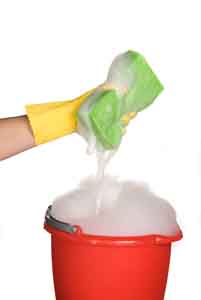 As for Dr. Mercola’s claim that distilled water is an active absorber and therefore absorbs carbon dioxide from the air, which turns into carbonic acid and makes the water highly acidic, that is again “potentially” true. In fact, pure distilled water is so “absorbent” that it is one of the two primary solvents we use, along with pure grain alcohol, in the manufacturing of herbal tinctures — to “draw out” the bioactives from the raw herbs. But that said, there are two points that make this relatively moot when it comes to drinking water. First, most people, after they distill drinking water, don’t pour the water onto broad-surfaced cookies sheets for storage with maximum air contact — letting it breathe in the parlance of wine connoisseurs. In fact, as any sensible person would do, it is bottled and covered, thus making exposure to carbon dioxide minimal. In addition, many water experts recommend that you add liquid trace minerals to distilled or reverse osmosis water as a matter of course. I know I have for nigh on a quarter of century. And curiously, Dr. Mercola mentions this option for R/O water in his newsletter. (“One way to ameliorate this is to re-introduce minerals to the water. I add about ¼ teaspoon of Himalayan salt per gallon of water to compensate for the minerals lost.”) But for some reason, he forgets to mention the same option for distilled water. (Note: some people like to bubble ozone through their distilled water, in effect dissolving it in the water. That too can indeed help increase the pH of water and improve its dissolved oxygen levels, thus countering any CO2 build up.)
As for Dr. Mercola’s claim that distilled water is an active absorber and therefore absorbs carbon dioxide from the air, which turns into carbonic acid and makes the water highly acidic, that is again “potentially” true. In fact, pure distilled water is so “absorbent” that it is one of the two primary solvents we use, along with pure grain alcohol, in the manufacturing of herbal tinctures — to “draw out” the bioactives from the raw herbs. But that said, there are two points that make this relatively moot when it comes to drinking water. First, most people, after they distill drinking water, don’t pour the water onto broad-surfaced cookies sheets for storage with maximum air contact — letting it breathe in the parlance of wine connoisseurs. In fact, as any sensible person would do, it is bottled and covered, thus making exposure to carbon dioxide minimal. In addition, many water experts recommend that you add liquid trace minerals to distilled or reverse osmosis water as a matter of course. I know I have for nigh on a quarter of century. And curiously, Dr. Mercola mentions this option for R/O water in his newsletter. (“One way to ameliorate this is to re-introduce minerals to the water. I add about ¼ teaspoon of Himalayan salt per gallon of water to compensate for the minerals lost.”) But for some reason, he forgets to mention the same option for distilled water. (Note: some people like to bubble ozone through their distilled water, in effect dissolving it in the water. That too can indeed help increase the pH of water and improve its dissolved oxygen levels, thus countering any CO2 build up.)
Dr. Mercola also says, “Since it [distilled water] is free of dissolved minerals and other particles, it has the ability to absorb toxic substances from your body and eliminate them. However, although drinking distilled water may be helpful when detoxifying for a week or two, the longer you drink it, the more likely you’ll develop mineral deficiencies and an acidic state.” But that’s covered if you add trace minerals to the water. For countering the effect in R/O water, Dr. Mercola recommends Himalayan salt. But the same practice would be equally beneficial when used with distilled water. I prefer Catalyst Altered Trace Minerals (CATW) because of the higher magnesium and lower sodium levels — not to mention the added micelle catalyst. (And in the interests of full disclosure, CATW is my formula.) Incidentally, there’s one other reason for adding trace minerals to distilled water. Because distilled water is devoid of minerals (AKA electrolytes), it is bio-electrically dead. Adding trace minerals remedies that concern too.
And finally, as to Dr. Mercola’s assertion that distilled water is acidic and pulls contaminants from whatever bottle you put it in, that’s simply not accurate in the real world. Distilled water ideally consists of only hydrogen and oxygen, with a completely neutral pH of 7. And yes, in reality, it almost always is slightly acidic, but usually, only slightly — just under 7. Yes, in special circumstances it can go as low as 5.6 if aerated or stored with a huge surface area exposed to the air. (Remember, distilled water absorbs carbon dioxide from the air.) The reality, though, is that in any home distiller system, the water will be shielded from exposure to air in its holding tank and then again once bottled by the end user. Thus, in most cases, distilled water for home use will have a pH of about 6.75, which is a little more acidic than I like, but hits Dr. Mercola’s ideal sweet spot dead on the money. And of course, when it comes to storing your distilled water in bottles, you can always store the water in glass jars or polyurethane bottles, which are non reactive. And finally, if you add trace minerals to your water (which I absolutely recommend if you’re drinking distilled water) it raises the pH and dramatically inhibits its ability to absorb carbon dioxide, thus rendering all concerns expressed in this paragraph meaningless.
The bottom line is that in the real world not one of Dr. Mercola’s primary “concerns” about distilled water stands up.
How is water distilled?
Let’s take a look at how a home water distiller is put together and how it works.
The basic water distiller works very much like the alcohol stills you’ve seen in movies such as The Great Escape — through evaporation and condensation. A heating element boils water in a tank. The resulting steam leaves the tank and enters a stainless steel cooling coil. In the cooling coil, the steam condenses to form distilled water. Some distillers use air to cool the steam. Others use incoming water circulating around the coil for cooling the outgoing steam. The purified water then drips out of the cooling coil and into a storage container.
Water distillers can remove most minerals, metals, organic chemicals, and micro-organisms from water. A clean, well-maintained distiller will remove over 95 percent of the minerals, including sodium, sulfate, nitrate, and arsenic. In addition, biological contaminants such as bacteria, viruses, and cysts are destroyed during distillation. This is actually a major advantage over R/O and filtration systems which allow biofilms to build up over time on membranes and filtration components inside their units and thus need to be regularly cleaned and maintained. The primary maintenance for distillers is the regular removal of mineral scale from the boiling chamber due to hard water. Incidentally, Dr. Mercola says that distillers do not remove fluoride. That is simply not true. Steam distillers do indeed remove a high percentage of fluoride. How does that work?
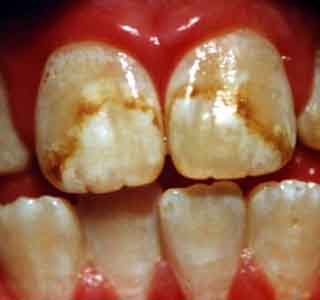
Mottling of the teeth from fluoride in the drinking water
First of all, you never find pure fluorine in water. The compounds used in water fluoridation are primarily Fluorosilicic acid (H2SiF6), an inexpensive liquid by-product of phosphate fertilizer manufacture, and to a lesser degree, Sodium fluorosilicate (Na2SiF6). The old standby, Sodium fluoride (NaF), is not used much anymore except by a handful of smaller water utilities and in toothpaste. Without belaboring the point, they all readily dissociate into sodium ions and hexafluorosilicate ions and then to hydrogen gas, hydrated silica, and fluoride ions — most commonly Hydrogen fluoride (HF). At the pH of drinking water (6.5-8.5) and at the concentration usually used for fluoridation (1 mg fluoride/L), the degree of hydrolysis is essentially 100%. And here’s the key to understanding how distillers get rid of fluoride: the boiling point of HF (the primary form of fluoride left in the water) is 67 degrees Fahrenheit — way, way below the 212 degree boiling point of water. That means that long before the water in your still has turned to vapor, the HF has turned into a gas, and been largely vented off through the VOC vent long before it ever reaches the water reservoir. The bottom line is that a good distiller can significantly reduce fluoride levels in your drinking water. But don’t take my word for it; numerous university studies confirm it.
Incidentally, virtually any good reverse osmosis unit will also provide fluoride reduction of 95% or better. Filtration systems, on the other hand, have a harder time with fluoride. A filtration system will only remove a very small amount of the fluoride unless it contains an activated alumina element, which some do. In fact, if you use a water filter, you absolutely want to make sure it contains an activated alumina element since it not only removes significant amounts of fluoride, but also arsenic, inorganic selenium (the kind you don’t want), and other heavy metals such as lead.
So how pure is distilled water versus filtered water? Let’s use a little common sense here. Every scientific lab in the world that requires the purest water available will use distilled water over filtered water every single time. End of story.
A concern about Dr. Mercola’s analysis of water systems
On December 16th, Dr. Mercola announced that he is now selling his own water filtration systems. Coincidentally, this is two days before he published his recent article explaining why buying a water distiller is not the way to go — the article we’ve analyzed in this newsletter.
 Now let me be absolutely clear here. I have no problem with Dr. Mercola promoting his own water filters. And I have no problem with him explaining why he believes his system is superior to other options. All of the major voices in alternative health do the same thing. I do it. Mike Adams at Natural News does it (or more accurately he promotes other people’s products that he markets on his site). That’s not a problem as long as you’re clean about it and let people know when you may have a personal agenda and when you’re strictly reporting.
Now let me be absolutely clear here. I have no problem with Dr. Mercola promoting his own water filters. And I have no problem with him explaining why he believes his system is superior to other options. All of the major voices in alternative health do the same thing. I do it. Mike Adams at Natural News does it (or more accurately he promotes other people’s products that he markets on his site). That’s not a problem as long as you’re clean about it and let people know when you may have a personal agenda and when you’re strictly reporting.
My concern with Dr. Mercola’s recommendations on water is that back on September 11th when he took on alkaline water, he categorically said that he had no agenda. To quote: “Please understand I have no ax to grind here, and I am not selling any competing products. The sole purpose of this report is as a public health message to warn people that alkaline water is not all it is hyped up to be.”
Understanding how long it takes to put the pieces together to bring a product to market, it is inconceivable that Dr. Mercola was not already planning to market a water filter when he made that statement. In addition, he begins that article with a video interview with Houston Tomasz whose company designs and markets water filtration systems — systems remarkably like the ones Dr. Mercola announced for sale on his site just 60 days later.
The bottom line is that for Dr. Mercola to preface his discussions of water by saying he has “no ax to grind” is, for lack of a better term…not clean. Unfortunately, what it means is that everything Dr. Mercola says about water from that point on must be taken with a grain of salt (Himalayan, preferably). Again, I have no problem with his selling water filter systems; just be clean about it. In the same way that a doctor gets paid for performing in his area of expertise, we all (Dr. Mercola included) have the right to make a living from our skills and knowledge. In fact, would you want it any other way? Would you rather take the advice of people who have no expertise, functional idiots as it were?
Evaluation of Dr. Mercola’s filters
Which brings us to the final issue of the day: how do Dr. Mercola’s filters stack up in the world of water? In general, they seem like fine middle of the road filters, but they would not be my first choice for two reasons.
- His filters claim an absolute filter size of 0.5 microns. This is not bad, and it will filter out cysts such as Giardia and Cryptosporidium. But it will also allow a plethora of health-threatening bacteria and viruses to get through.
- But the bigger problem is that there is no element in the filter to remove any significant degree of fluoride and arsenic — both major health issues in drinking water.
My recommendations
As I said in Lessons from the Miracle Doctors, my recommendations are:
- The best option is to get a high-end filtering system for the entire house that treats the water where it enters your house. It needs to remove all contaminants (bacteria, heavy metals, fluoride, etc.), not just chlorine. This is obviously the most expensive way to answer the problem ($1,500-$2,500, on average), but if you actually get a good system that removes all of the toxins from every single water outlet in your house (toilets included), it’s the best way to go.
- A good water distiller is actually a fine option and will provide the “cleanest” water you can get, but you need to be sure it incorporates a venting system and a charcoal filter. And, if you drink distilled water, you will absolutely want to add quality liquid trace minerals to your water before you drink it.
- And as for reverse osmosis (R/O) units, I am in total agreement with Dr. Mercola. R/O systems produce a good quality drinking water, but they waste a huge amount of water — many gallons of waste for each usable gallon. I’m not really sure that’s justifiable nowadays with the looming water shortage the world faces (recent Biblical flooding aside).
- For most people, though, a good water filter can do the job, but keep in mind that I said “good”. It will require several stages and several different kinds of media to remove chlorine, biochemicals, drug residues, fluoride, heavy metals, and ultra-small pathogens such as Cryptosporidia. And no, the self-contained filters that mount on your faucet and the ever popular filter/pitcher combinations won’t do the trick. They just don’t offer enough contact time for water and the filtering medium. They may improve the taste of the water, but they won’t protect your health. My recommendation is The Aquarius Triple Plus Counter Top Water Filter with AQUATOMIC. As its name implies, it has three filters.
- A charcoal based cartridge cleans up the chlorine and VOCs.
- The fluoride reduction cartridge significantly reduces fluoride and arsenic levels, not to mention a number of other heavy metals.
- And a ceramic cartridge, rated at 0.2 micron (60% smaller than found in Dr. Mercola’s filter) takes care of a high percentage of ultra-small pathogens.
- As a bonus, it also contains a “Magnetic Hydrating Device”, which interestingly enough is based on an idea I proposed in a newsletter many years ago.
Keep in mind, that if you use a point of use filter like the Aquarius, you will need to use a filter on your shower and bath outlets. You breathe in and absorb more chlorine through your skin in a 15 minute shower than you do drinking 8 glasses of that same water throughout the day. Which is why the better choice, if you can afford it, is a whole house filtration system that also includes fluoride reduction.
Which brings me to my final point.
When it comes to recommending these filters, unlike Dr. Mercola, I truly have no ax to grind. I make no money from their sale. I recommend them because I believe they are the “best in class.” In fact, when I first started recommending them, the President of Aquaspace, Michael Pedersen, contacted me and offered me his standard 20% distributor commission for any filters bought through my recommendation. I asked him if he would instead pass that discount along to any of my readers who bought his filters. He loved the idea and set up the “Jon Barron Discount” at Aquaspace for anyone who used my name when ordering. He has kept that discount going for 12 years now. I still make nothing from the filters sold; all of the discount goes to you. Oh, and Michael and I have become good friends over the years.
That’s my “no ax to grind” story. The only money I make is from my formulas, which are sold through Baseline Nutritionals, my consulting work, and my private label formulary. Outside of Baseline Nutritionals, I make no “overrides” on any other products I recommend onsite. If I recommend it, it’s because I like it. Further, nothing is sold through the Baseline of Health Foundation. The Foundation is purely a free alternative health information resource.
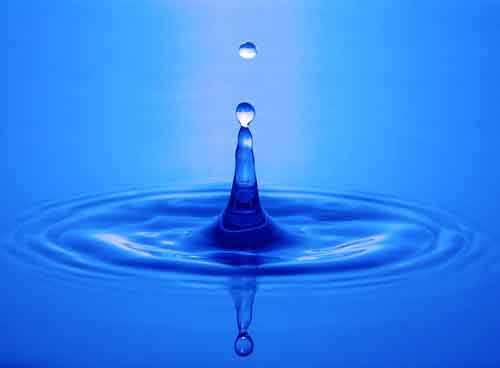





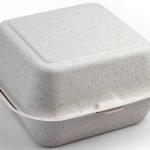

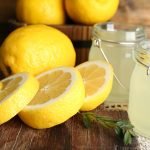




Hi Dr Jon Barron,
I am one of
Hi Dr Jon Barron,
I am one of your regular news latter reader. Thank you for the interesting articles regarding on the water. I have some questions on the drinking water.
1) What is your comment on the BFRV and Medical Grade Ionized Water (MGIW) promoted by John Thomas, the author of the book Young Again?
2) There is also a BEV water from from one of the supplier who claim it is similar to BFRV water.
Both claim to be very beneficial to health. Your comment please.
Thank you.
tanchew
What do you think of the John
What do you think of the John Ellis Water Machines ????
great article on the
great article on the distilled and filtered water.
read it.
Hi Jon,
Where can I find the
Hi Jon,
Where can I find the info or more info on this “Magnetic Hydrating Device” you mentioned?
Are there any dangers using activated alumina?
Thanks,
Walter
What do you think of the
What do you think of the Berkey water filters?
I’ve had one for 4 years and
I’ve had one for 4 years and I love it! Water tastes great, I can never go back to plain tap water.
What do you think of the Zero
What do you think of the Zero Water system? And does it remove fluoride?
I use Zero water jug and I
I use Zero water jug and I believe it removes everything, including fluoride
so after all this what
so after all this what distiller is best?
I have been using the Pure
I have been using the Pure Water, Inc’s distillers for the last 15+ years and they last forever. You can replace parts when something is needed too, to keep the machine going indefinitely.
Thank U
Thank U
Wow – great article. I have
Wow – great article. I have been buying distilled water for years – would truly prefer an easier method, rather than buying gallons (in plastic jugs sadly) upon gallons every month, which only covers my drinking water and some cooking concerns. What I would give for an entire whole home system. Thoughts of moving have held us back, however I will certainly keep this company and product in mind. I also am curious about mineral replenishment. I have used baking soda to raise pH levels in my distilled water, however was told that Pink Himalayan salts were a wise choice in our diet – with over 84 natural minerals. I now am finding out that these salts contain extremely high levels of fluoride – the very thing (natural or not), that I've been trying to avoid. The more I research this, the more upsetting. Any thoughts or comments?
You might find this article
You might find this article useful. http://www.jonbarron.org/athletic-performance/barron-report-dietary-supplements-minerals
Thank you for this article,
Thank you for this article, Jon. It is time that google removes Dr. Mercola’s false information about distilled water. Namaste
Great article and it's about
Great article and it’s about time someone set Dr. Mercola straight on this. One thing your article should mention though is there are 2 types of minerals organic and inorganic. Distilled water only leaches or pulls out inorganic minerals that we can’t use from the body. tap and spring water contain all inorganic. Our bodies are only designed for organic minerals from plants. The plants transform the inorganic into organic. Most people(including doctors) still don’t know this.
Great point! I’m guessing we
Great point! I’m guessing we both found this page via Andrew Norton Webber material
What about Air to Water
What about Air to Water machines? Do they produce the most pure water?
What about air to water
What about air to water machines, do they produce pure water and remove fluoride?
These are essentially
These are essentially dehumidifiers that condense water out of the air. The water will be as clean as the air it comes from—plus any filtering–but should be essentially fluoride free since no one is adding fluoride to the air. The major negative with air to water machines is that they are very, very energy intensive.
Jon, great article as always.
Jon, great article as always. Thanks!
One question I do have concerns cleaning the distiller unit after use. I’ve been using ACV (apple cider vinegar) which appears to do a fantastic job. Is this a correct procedure or am I mistaken?
I’ve used a WaterWise distiller for approximately the last 3 years. I’ve had the water tested at a local lab and it performs as was advertised and as you have stated. It has a 6.5 pH which is easily remedied with sea salt/baking soda. Wouldn’t it also be possible to counter the acidity through diet?
For cleaning, you’re probably
For cleaning, you’re probably better off using plain old distilled white vinegar. It’s not only cheaper than ACV, but more importantly, it’s not going to leave anything behind. Remember, you’re not consuming it, so there are no health benefits to using ACV.
Not sure that salt and baking soda are the best way to raise pH. You can use alkaline pH drops, or a high pH trace mineral product such as Concen Trace trace mineral drops.
And yes, an alkaline diet would do the trick, but why make it overcome a slightly acid water.
Concentrace contains mercury
Concentrace contains mercury and arsenic
How much baking soda do you
How much baking soda do you add to 1 gallon of distilled water you buy at the store?
Thanks Doc! I have seen the
Thanks Doc! I have seen the benefit of sea salt and baking soda in distilled water and I’ve been drinking it for 15 years now without those ingredients. No real health problems from those years. I am not as nice as you are, I don’t support snake oil salesman that think they know it all!! I’ll get over it I guess….
Thanks again!
Good article! What is the
Good article! What is the best whole house filter that removes chlorine and florid? John
Hi John,
Hi John,
If you see the article, Jon mentions Aquaspace water systems, they have whole house water filters too.
So you’re saying that a
So you’re saying that a simple vent will protect the water from becoming contaminated with chloroform?
Not exactly. The statement is
Not exactly. The statement is specific to distilled water. And what the article actually says is that any moderately priced distiller used for producing drinking water will make use of a VOC venting system which allows volatile gases to “leave” the distiller before they are allowed to condense in the cooling coil and an activated charcoal filter (the same type used in any water filtration system) which captures any residual VOC’s after they have condensed but before they can make their way into the distiller’s holding tank from which drinking water is collected.
Your article is good. But I
Your article is good. But I need advice. What is the answer to get rid of fluoride and other contaminates from the water. I do not live in the country I have no access to well water and I don’t like water from plastic bottles.I live in NYC.
I wanted to get rid of fluoride from my water because fluoride is a poison and put into water in NYC. I have no access other that to use a pitcher and access to a faucet type water purifier.
I use a distiller my distiller pours out into a glass pitcher.. I am against tap water. I add Himalayan salt to my water. Not sure what to do buy trace minerals and the brand to buy. I do drink a lot of lime water room temperate which is healthy.
Hi Jane,
Hi Jane,
Sounds like you are already doing a great job. See what Jon said in his article: “A good water distiller is actually a fine option and will provide the “cleanest” water you can get, but you need to be sure it incorporates a venting system and a charcoal filter. And, if you drink distilled water, you will absolutely want to add quality liquid trace minerals to your water before you drink it.”
you did not address this
you did not address this point on mercola’s concern on distilled water, one that i have been trying to find an answer on, esp nickel which i have a reaction to:
‘Many distillers on the market are made of metal, which will actually add certain toxic metals like nickel back into the water.’
Unless the nickel is in the
Unless the nickel is in the final holding tank (where it would indeed be leeched out by the solvent action of the distilled water), any nickel in the active part of the distillation unit that leeched into the water would be left behind in the distillation process itself.
Drinking municipal tap water
Drinking municipal tap water with fluoride all of my life has provided me with perfect teeth. That is why they put it in toothpaste. Like anything, I’m sure there are a few outplaying people on the Bell curve who ate sensitive to it. For the overwhelming majority of people, it is a good thing. Good tooth are a sign of prosperity. Society looks down on people with crappy or missing teeth. In many parts of the world, there are things in the water that can kill you and you probably can’t even see through. THESE people have water problems. Anyone in the U.S or Canada complaining about municipal water quality needs to get a life.
The devastating, toxic
The devastating, toxic effects of fluoride are well documented by mainstream organizations such as:
And add to this the health problems associated with fluoride include:
And then, of course, there’s the aluminum/fluoride connection. New research has revealed that fluoride in drinking water makes the aluminum that we ingest more bioavailable. In the presence of fluoride, more aluminum crosses the blood-brain barrier and is deposited in the brain. As was reported in Brain Research, Vol.7 84:98, the combination of aluminum and fluoride causes the same pathological changes in brain tissue that are found in Alzheimer’s patients.
James, odds are your teeth
James, odds are your teeth are so great from genetics and mouth bacteria, not fluoride. My husband drinks little to no tap water and barely brushes his teeth, yet at 56 has only had a couple cavities in his whole life. Research where fluoride adding to water came from (Alcoa family) and how it was used to make prisoners docile in German camps.
Just because you can’t see immediate adverse health effects, doesn’t mean they aren’t occurring.
Our bodies are complex systems that all work together, not separated systems as we have been led to believe.
Good health and peace to you neighbor
Thanks for this article, I
Thanks for this article, I too questioned Mercola’s bias on filtered water, you may or may not have read it, but there was an article on his site that claimed coca cola and other beverages were harmful in part because they used distilled water, I don’t know if the article is still up there, but this is blatantly false. Pop companies don’t use distilled water, but filtrated water. Distilled would be far too expensive, given the quantity and quality of their product…
Great and very rational
Great and very rational article. Thanks so much Dr. Barron for your intellectual honesty. I’ve got a lingering question however. You mention that most flouridated water systems actually use fluorosilicic acid. Having looked up the chemical in question it has a flash point almost identical to water (108.5C). Is there a credible risk that distillers will actually vaporize the fluorosilicic acid with the water? That’s not something the carbon filter can stop.
Thanks.
Really, your products are
Really, your products are effective and healthy. Thanks for providing these healthy supplements online at affordable prices.
Do distillers vent out
Do distillers vent out contaminated air while distilling the clean water?
I want clean drinking water, but don’t want to breathe back in the contaminants. PLEASE ANSWER? I need this information before purchasing a distiller. Thanks in advance.
Most distillers handle VOCs,
Most distillers handle VOCs, but check with your manufacturer.
I was wondering if there are
I was wondering if there are any new products on the market that you recommend.
Hı,
Hı,
I have hade cysts in my thyroid glans and cured me with Lugols Iodine Solution. I still take Iodine drops to get enough Iodine (first thing I do in the morning after I wake upp). I think, in that way I prevent my body pick upp chlorine from environment. I would like to know what you think about it. Do you think I still need a filter to my shower?
Best Regards
Nihal
I could not agree with the
I could not agree with the information in this article more! What a wonderful refreshing rebuttal of Dr. Mercola’s articles!